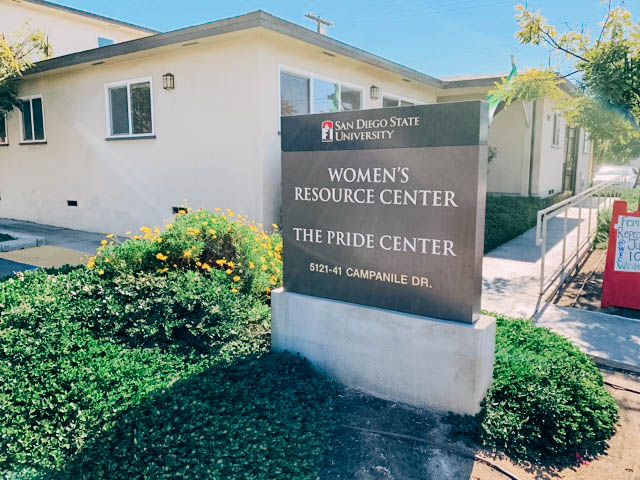Women across campus are looking to share their voice, starting with the community in and around SDSU.
“My involvement in women’s rights and feminism truly began when I entered college,” Elzbeth Islas, interim assistant coordinator at the Women’s Resource Center, said.
For Islas, she was an active participant in college as an undergrad at UC San Diego, and her journey began with learning — and unlearning — certain ideals she had come to know about women.
“Are (women) hesitant to speak out because they are afraid of losing friends or seeming uneducated?” Islas asked. “Are they unsure of where they can get involved and make a difference?”
Both “Feminist U” and “Resistance Through Healing” are groups administered by Women’s Resource Center fellows.
“Fellows are tasked with developing and facilitating social justice events,” Islas said, adding that her goal is to see women empowered, to see that they are a part of something greater.
These fellows use their passion for mental health to open up the doors for students to communicate.
Jessica Nare, coordinator of the Women’s Resource Center, is the heart behind “Resistance Through Healing,” a six-part series where women can come and talk through issues, heal and profit from a discussion-based support group, instead of sitting through a class lecture.
“We find that so many students on campus are in need of healing from different kinds of violence they face in their lives,” Nare said.
The Feminist U series is another aspect of the center and is geared toward providing information on feminist topics. These different workshops are tools to sustain students as they go through the university, and as they transition out of college.
Students come from all over to attend SDSU, and many come in looking for groups or communities they can connect with.
“My parents are immigrants to this country, and my personal narrative has been largely shaped by this,” Islas said. “My parents’ story and the way I lived parts of it was pivotal to my understanding of the marginalized and privileged identities I hold.”
Islas said that the experiences surrounding women’s equality has brought her to where she is today through “immigration and (her) exposure to feminist pedagogy.” She attributes that all of these experiences have led her in her development as a feminist leader, and if students are struggling, to decipher why that is, or where the challenge they may be facing is coming from.
The Women’s Resource Center is not just for women — men are welcome to participate and utilize the center as well, and are encouraged to come alongside and support women. SDSU also provides women’s studies classes, designed to provide better education, and better knowledge of feminist topics, so students understand the stigmas surrounding them, and can tear them down and create a better environment.
All of these groups and events are geared toward opening discussion. For Islas, this involves “less ‘lecture style’ and more ‘discussion’ style” dialogue.
“Feminist U: De-Stress Yourself” will take place Nov. 19 at the Women’s Resource Center from 1 to 2:30 p.m., and will offer yoga, zines, and meditation to help alleviate stress. “Resistance Through Healing” is an open discussion group, and will resume the fifth lecture, “Healing from Academia,” in its six-part series on Nov. 27 at the WRC from 1 to 2 p.m.
“We have groups that focus on supporting survivors of sexual violence, queer women, and black women,” Nare said. “We hope that these groups will help to foster community and resiliency.”







